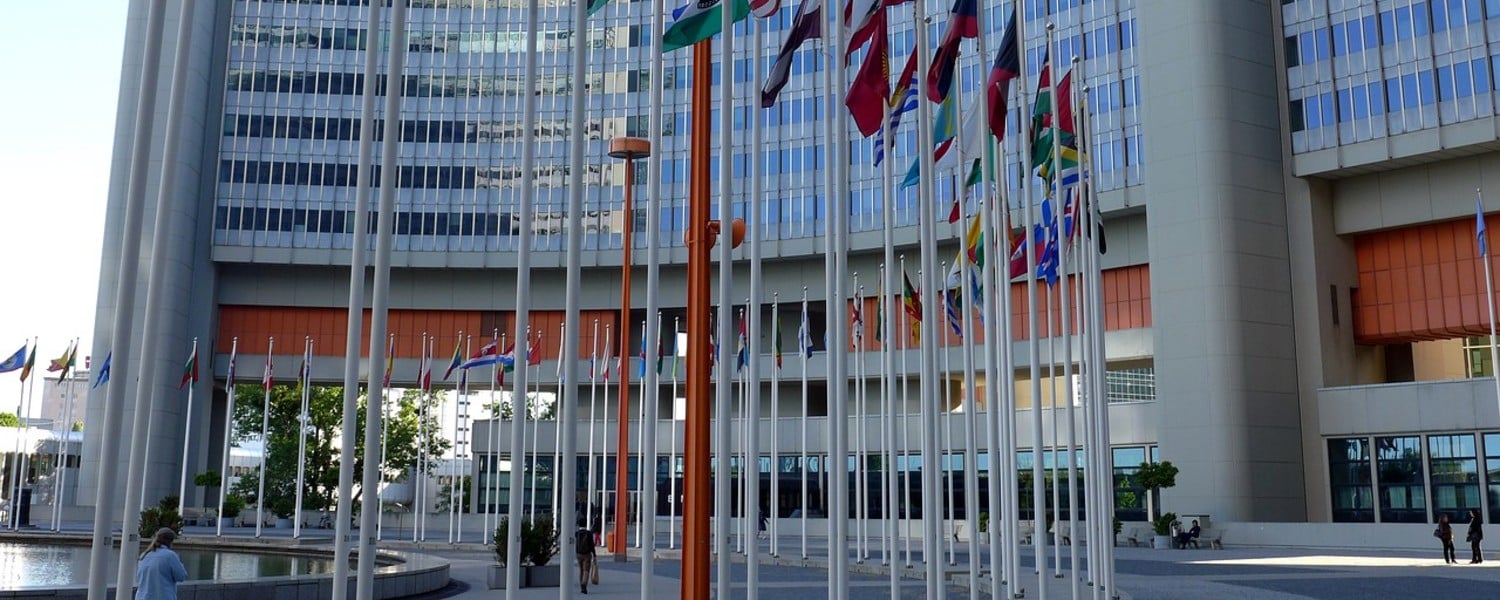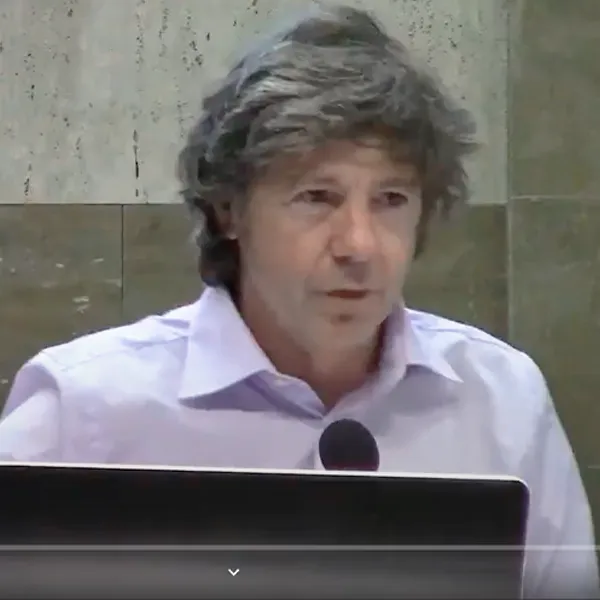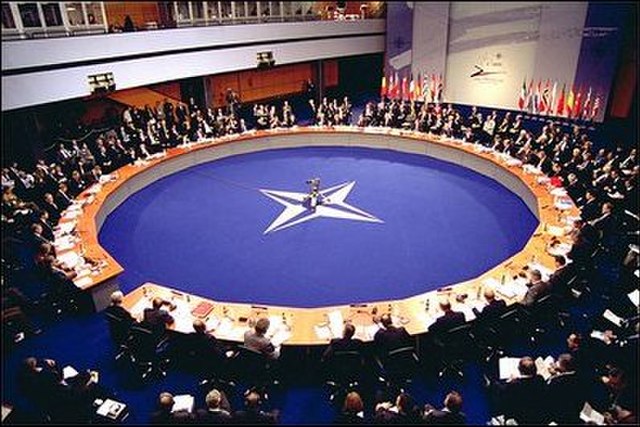This article was published on 12 April 2020 on the site Other News. Its authors are Federico Mayor Zaragoza, President of the Spanish Association for Science Progress (AEAC). Roberto Savio, President of “Othernews”, Rosa María Artal, Emilio Muñoz, Promoting Partner of AEAC, María Novo, Professor of Environmental Education and Sustainable Development, Vicente Larraga, Founding Partner of AEAC, and Enrique Santiago, Jurist, expert in Human Rights and International Law. The article is republished here with permission from Other News.
It has become obvious that the G20 – founded in 2008 to reduce the scandal produced by the autarchic G6, G7 and G8– has been a complete failure, since it has increased the social gap and has left behind the most vulnerable ones. We are entering a new era, in the face of potentially irreversible processes such as climate change. We must therefore respond as wisely and firmly as possible, and invent without delay new measures at a global scale
The coronavirus pandemic has once again highlighted the shortfalls and lack of resources that have prevented us from reducing – if not from avoiding– the magnitude of consequences, and from downsizing not only the material damage but, above all, the human casualties…
In the face of the current outbreak of coronavirus –COVID-19– we cannot further tolerate an economy based on speculation, relocation of production and war. We must replace it by an economy based on knowledge and the promotion of a global sustainable development, allowing a dignified life for everyone and no longer excluding 80% of mankind, as it is currently the case.
When we see the radical difference there is between investments devoted to potential conflicts and resources available to face recurrent natural disasters (fire, floods, earthquakes, tsunamis…) or health catastrophes such as the current pandemic, we are horrified to realize that the concept of “security” that is still favoured by major weapon manufacturers is not only obsolete but highly prejudicial for mankind. Therefore, it is of the utmost urgency to establish a new concept of “security” under the close scrutiny and direct involvement of United Nations.
Health is the most important asset, and both its treatment and prevention aspects should be taken into account, always dealing with it with the highest professional expertise, and leaving aside any other consideration. Because health is a right everyone is entitled to. Great progress has been achieved in medical science, but just a small portion has been shared. The big challenge is being able to share and enlarge knowledge.
Gradually, epidemics –which have always existed and will continue to exist– will become serious pandemics because “human mobility” will keep on growing. Until some decades ago, their propagation was very scarce because the vast majority of mankind was confined to small spaces and the transmission of disease outside its borders was unlikely.
We are presented everyday with images of the remarkable performance of health workers who take care of all coronavirus patients with the highest standards of professionalism and humanity, despite the dwindling resources they have available due to the unquenchable aspiration to weaken the State that has prevailed in recent years (this is how current democracies are “dying”…). We praise and applaud the invaluable work that continues to be carried out by all those who work in essential industries (such as nutrition, transport, distribution, regulation of citizens’ everyday behaviour, cleaning, disinfection…), as well as the involvement of military and security forces in emergency situations. It is under these circumstances that we become aware -and we should never forget it again- of the impact caused by cutbacks in research capability, and by the reduction of the industrial network and many of the most relevant sectors of public health which should –from now on– always be prepared for eventualities having the same nature and seriousness as the current one.
In the “Letter to the G20” that has just been signed by “world leaders as a response to the global coronavirus crisis”, the measures agreed upon are exactly the same as those implemented to tackle the 2008 financial crisis, that is, the same measures which led to the present situation and proved that markets cannot solve global challenges. To be able to cope with global threats, a proportionate response from “We, the peoples” is needed. Only a democratic multilateralism –and not the plutocracy that represents the power of one sole country– will allow us to rise to the occasion. Why should the reins of our common destiny be put in the hands of 20 countries when there are currently 196 countries? Problems will not be solved by “big powers” (financial, military, energy and media industries) but rather through the voice and joined hands of all peoples. The letter should have been addressed to United Nations to reinvigorate multilateralism instead of its main opponent.
The time has come –and potential irreversibility makes it even more urgent– to redirect the current gloomy trends of the neoliberal drift, which have led us to ignore the appeals of the scientific community pressing us to take without delay all relevant steps against climate change and the implementation of SDGs (Sustainable Development Goals, 2030 Agenda) agreed by the UN General Assembly in November 2015 “to transform the world”.
Science must support citizens so that they stop being at the mercy of large international corporations and a few governments. Information that is so readily available today must be adequately checked so that, in the short term, our path towards the future is based on knowledge and not interests.
Wisdom consists today in promoting the evolution of governance so that revolution is no longer seen as the sole answer. To resort once more to outdated solutions would be equal to siding with the excellent cartoon published by El Roto in “El País” on April 5th: “When everything is over nothing will be the same… except for the usual, of course!”.
Progress achieved by medical science in recent years -vaccines, antibiotics, surgical practices, in-depth knowledge of pathophysiology, molecular regulators, mechanisms of genetic expression and epigenetic conditioning, cell signalling, enzymatic diagnosis and physical introspection…- has improved the standard of life and longevity of populations. Great advances have been achieved but the adequate means have not been provided to ensure that they benefit all human beings, equal in dignity.
The big challenge is now the capacity to share and enlarge knowledge. Until a few decades ago we did not know how the majority of the inhabitants of our planet lived. Now we do know and, therefore, if we don’t ensure access for everyone to reasonable levels of goods and services, we become accomplices.
Healthcare must be comprehensive and available for everyone. The time for passivity and fear is over, and we must proclaim loud and firmly that society will not make any concession when it comes to issues on which many times life itself depends.
The future is still to be done. And democracy is in jeopardy. The future we dream of will emerge from global awareness, from worldwide citizenship, that will soon achieve equity and will at last be able to express itself and will no longer be invisible, silent, and submissive. At last, citizens will be able to freely demonstrate in the streets and the cyberspace. At last the power of reason will prevail over the power of force. At last, everyone and not just a few. At last, the participation of citizens. At last, speech will shed light on the dark paths of tomorrow.
Photo: The answers to global problems should not be the result of international corporations’ and few governments’ will, but an act of united nations and worldwide citizenship (source: Pixabay, CC0)
The Barricade is an independent platform, which is supported financially by its readers. Become one of them! If you have enjoyed reading this article, support The Barricade’s existence! We need you! See how you can help – here!










